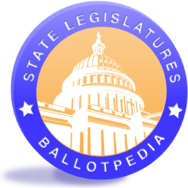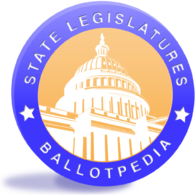Help us improve in just 2 minutes—share your thoughts in our reader survey.
2018 Oregon legislative session
 |
| 2018 legislative sessions coverage |
|---|
| Oregon State Legislature | |
 | |
| General information | |
| Type: | State legislature |
| Term limits: | None |
| Session start: | February 5, 2018 |
| Session end: | March 3, 2018 |
| Website: | Official Legislature Page |
| Leadership | |
| Senate President: | Peter Courtney (D) |
| House Speaker: | Tina Kotek (D) |
| Majority Leader: | Senate: Ginny Burdick (D) House: Jennifer Williamson (D) |
| Minority Leader: | Senate: Jackie Winters (R) House: Mike McLane (R) |
| Structure | |
| Members: | 30 (Senate), 60 (House) |
| Length of term: | 4 years (Senate), 2 years (House) |
| Authority: | Art IV, Oregon Constitution |
| Salary: | $23,568/year + per diem |
| Elections | |
| Redistricting: | Oregon Legislature has control |
This page provides an overview of the 2018 Oregon Legislative Assembly and its general and special sessions. The timelines below contain noteworthy events from the sessions curated by Ballotpedia throughout the year.
If you know of any additional events that should be added to this page, please email us at editor@ballotpedia.org.
Overview
In 2018, the Oregon Legislative Assembly was in session from February 5, 2018, through March 3, 2018, and convened for a one-day special session on May 21, 2018.[1]
Partisan control
Oregon was one of eight Democratic state government trifectas in 2018. A state government trifecta occurs when one political party holds the governor's office, a majority in the state Senate, and a majority in the state House. For more information about state government trifectas, click here.
The following tables show the partisan breakdown of the Oregon Legislative Assembly in the 2018 legislative session.
Senate
| Party | As of July 2018 | |
|---|---|---|
| Democratic Party | 17 | |
| Republican Party | 13 | |
| Vacancies | 0 | |
| Total | 30 | |
House
| Party | As of July 2018 | |
|---|---|---|
| Democratic Party | 35 | |
| Republican Party | 25 | |
| Vacancies | 0 | |
| Total | 60 | |
Leadership in 2018
Senate
- Senate president: Peter Courtney (D)
- Majority leader: Ginny Burdick (D)
- Minority leader: Jackie Winters (R)
House
- Speaker of the House: Tina Kotek (D)
- Majority leader: Jennifer Williamson (D)
- Minority leader: Mike McLane (R)
Status of legislation
| Status of legislation at the end of the 2018 regular session | |||
|---|---|---|---|
| Legislation | Subject area | Actions during the regular session | Status at the end of the regular session |
| HJR 203 | Ballot measure: Oregon Fundamental Right to Healthcare Amendment (2018) | Passed House | Not on ballot on November 6, 2018 |
| HB 4145 | Expand ban on firearm possession | Passed legislative assembly | Governor signed |
| HB 4155 | Require government to contract with ISPs that abide by net neutrality rules | Passed House Passed Senate |
Governor signed |
| Status of legislation at the end of the 2018 special session | |||
| Legislation | Subject area | Actions during the special session | Status at the end of the special session |
| HB 4301 | Tax cut for sole proprietors | Passed legislative assembly | Governor signed |
Regular session
February 13, 2018
Oregon House passes constitutional amendment making healthcare a fundamental right
The state House voted 35-25 along party lines in favor of a constitutional amendment—House Joint Resolution 203—that would state that "it is the obligation of the state to ensure that every resident of Oregon has access to cost-effective, medically appropriate and affordable health care as a fundamental right." All 35 Democrats in the House voted for the amendment, and all 25 Republicans voted against it. If 16 of 30 senators also approve the amendment it will go on the ballot in November 2018. At the time of the amendment's passage in the House, Democrats held a 17-13 majority in the state Senate; Oregon was a Democratic trifecta. The state Senate held its first hearing on the amendment on February 14 and scheduled a public hearing and possible work session for February 19. Read more here.
- Update: The amendment did not see further consideration in the state Senate and did not appear on the ballot on November 6, 2018.
- See also: Oregon Fundamental Right to Healthcare Amendment (2018)
February 22, 2018
State Legislature approves bill expanding firearm possession prohibition
The Oregon State Legislature passed House Bill 4145, which would expand the ban on firearm possession to include anyone with a domestic violence or stalking conviction even if they are not living with or married to or do not have children with the victim.
Offenders with a domestic violence or stalking conviction who were living with, married to or had children with the victim had been banned from owning a firearm since 2015.[2]
The bill passed 37-23 in the state House and 16-13 in the state Senate.
Governor Kate Brown (D) tweeted:
Closing the Intimate Partner Loophole was my top priority this session, and I look forward to signing #HB4145 into law. But more must be done, and we need Congress to pass meaningful gun legislation to keep our communities safer.
— Governor Kate Brown (@OregonGovBrown) February 22, 2018
Anne S. Teigen, a criminal justice researcher with the National Conference of State Legislatures, told The Associated Press that Oregon was the first state to pass a gun-control measure since the school shooting in Parkland, Florida, on February 14, 2018.[3] Read more here.
- Update: Gov. Kate Brown (D) signed HB 4145 on March 5, 2018.
February 26, 2018
Oregon House approves bill about net neutrality, government contracts
The Oregon House of Representatives approved HB 4155, a bill related to government contracts and internet service providers (ISPs). Six Republican representatives joined 34 Democrats to vote "yes." Seventeen Republicans voted "no." Two Republicans and one Democrat were excused. The bill would not implement net neutrality rules but would require state and local governments in Oregon to contract with ISPs that abide by net neutrality guidelines. State and local governments would be prohibited from contracting with ISPs that engage in paid prioritization, content blocking, or other forms of content discrimination. The bill was sent to the state Senate for approval.
On December 14, 2017, the Federal Communications Commission (FCC) voted 3-2, along party lines, to repeal net neutrality rules instituted during the Obama administration. The FCC also sought to prevent state and local government from imposing net neutrality rules.
At the time of the bill's passage, Oregon was one of at least 26 other states that had introduced bills in response to the FCC's ruling. Many of the bills focused on net neutrality requirements for ISPs who did business directly with the state. Oregon also joined 20 states and the District of Columbia in a legal challenge to the FCC's ruling. All of the states that joined the suit had Democratic attorneys general.
- Update: The state Senate approved HB 4155 on March 1, 2018, and Gov. Kate Brown (D) signed it on April 9, 2018.
- See also: Net neutrality responses by state
March 1, 2018
Oregon Senate approves bill related to net neutrality
The Oregon State Senate approved HB 4155, a bill about net neutrality and government contracts, by a 21 to 7 vote. Four Republican senators and all Democratic senators voted in favor. The bill was sent to Democratic Gov. Kate Brown, who tweeted support for preserving net neutrality principles. Read more here.
The Trump Administration is once again putting corporations’ interests ahead of everyday Americans and Oregonians. Net neutrality must be preserved.
— Governor Kate Brown (@OregonGovBrown) November 21, 2017
- Update: Gov. Kate Brown (D) signed the legislation on April 9, 2018.
- See also: Net neutrality responses by state
March 5, 2018
Gov. Brown signs HB 4145 into law
Democratic Gov. Kate Brown signed HB 4145 into law. The law expands the ban on firearm ownership to individuals with a domestic violence or stalking conviction against non-married intimate partners. HB 4145 passed the Oregon State Legislature in February by a 37-23 vote in the state House and a 16-13 vote in the state Senate. Read more here.
The Trump Administration is once again putting corporations’ interests ahead of everyday Americans and Oregonians. Net neutrality must be preserved.
— Governor Kate Brown (@OregonGovBrown) November 21, 2017
April 9, 2018
Gov. Brown signs net neutrality bill
Gov. Kate Brown (D) signed HB 4155 into law. The bill requires government bodies in Oregon to contract with internet service providers (ISPs) that operate under net neutrality guidelines. A press release on the governor's website said ISPs must "enable equal access for all web traffic, regardless of the source" in order to contract with the government.[4] The bill was passed by the Oregon House of Representatives in February and by the Oregon State Senate in March.
Special session: May 21, 2018
Gov. Brown calls for special session
On April 24, 2018, Gov. Kate Brown (D) called for a one-day special session to convene on May 21, 2018, to discuss whether sole proprietorships should be allowed to qualify for small business tax breaks. Brown signed a law earlier in 2018 that prevented certain businesses from benefitting from a federal tax deduction and she called the special session to consider allowing those businesses to benefit from a different tax break, saying it would "create a level playing field for Oregon’s smallest businesses."[1][5]
Republican lawmakers, such as Senate Republican Minority Leader Jackie Winters, said the need to discuss a new tax break was the fault of the governor and the Democratic Party. Winters added that Republicans would try to ensure that as many businesses as possible benefited from Brown's plan.[1] Sen. Herman Baertschiger (R) said the special session was a waste of taxpayer funds and "if Governor Brown truly cared about small business she would have vetoed the $1.3 billion small business tax increase" she signed earlier in 2018.[5]
The Oregon chapter of the Democratic Socialists of America, which describes itself as "building progressive movements for social change," also opposed the special session, arguing that the tax break would benefit the wealthy. Emily Golden-Fields, co-chair of Portland Democratic Socialists of America, asked, "Where’s the special session for education? For rent control? For foster care? To protect immigrant and refugee communities?" The group, along with the Poor People's Campaign, planned to protest at the capitol on May 21.[6]
Brown expected the session to last one day—which would require a supermajority vote to suspend normal operating procedures—but Democratic legislative leaders issued a schedule on May 10 telling lawmakers to expect a five-day session. The schedule anticipated that Republicans would not agree to suspend procedures.[1][7] Read more here.
May 21, 2018
Lawmakers pass tax cut for sole proprietors in one-day special session
The Oregon Legislature approved House Bill 4301, which would give a tax cut to small businesses. The bill passed 51-8 in the state House and 18-12 in the state Senate. It would extend a tax break Brown approved in 2013 to include sole proprietorships. Chris Allanach, acting legislative revenue officer, estimated the reduction would cost the state $11.3 million in 2018, $11.8 million in 2019, and $12.5 million in 2020.
Brown said of the bill, "It was really clear in general, that Republicans wanted more—more tax breaks for small businesses. The Democrats wanted different or more revenue-neutral proposals. We weren’t able to reach a compromise in those conversations so we went with my very simple straightforward proposal that would ensure tax fairness for our businesses."[8][9]
- Update: Gov. Kate Brown (D) signed the legislation on May 22, 2018.
Noteworthy events
Oregon Senator sues governor over state tax code
On June 19, 2018, state Senator Brian Boquist (R) filed a lawsuit in state tax court against Gov. Kate Brown (D), the state Department of Revenue, and legislative leadership. Boquist asked the court to declare Senate Bill 1528 "unconstitutional, null and void." Oregon's tax code copies federal tax law and SB 1528 stopped certain businesses from receiving a federal tax deduction implemented by the Tax Cuts and Jobs Act on both federal and state taxes. The federal tax deduction copy would have lowered taxes and cost the state an estimated $217 million in the first two years. It passed the legislature by a simple majority along party lines in March 2018 and was signed by Gov. Brown on April 13, 2018. It was effective on June 2, 2018.
Boquist, who represented himself, argued that SB 1528 was essentially a tax increase and should have required a three-fifths majority to pass, as mandated by Oregon's Constitution. In a legal opinion issued in February, Legislative Counsel Dexter Johnson said that the bill was not "for raising revenue and therefore may pass with a simple majority."
Legislators disputed how to evaluate the SB 1528 before its passage. Democrats viewed SB 1528 in relation to state tax code prior to the federal tax cuts. In their eyes, SB 1528 was not a tax increase because it stopped the new federal deduction from copying onto state taxes. Republicans disagreed, arguing that SB 1528 amounted to a tax increase because residents would have paid fewer taxes if SB 1528 had not been passed.[10][11]
Legislatively referred constitutional amendments
In every state but Delaware, voter approval is required to enact a constitutional amendment. In each state, the legislature has a process for referring constitutional amendments before voters. In 18 states, initiated constitutional amendments can be put on the ballot through a signature petition drive. There are also many other types of statewide measures.
The methods by which the Oregon Constitution can be amended:
- See also: Section 1, Article IV, and Article XII of the Oregon Constitution and Laws governing ballot measures in Oregon
The Oregon Constitution lays out four different paths, in two different articles, for how to go about changing the state's constitution.
- The constitutional revision process is established in Section 2 of Article XVII.
- Section 1, Article IV, says that the people of the state can use an initiated constitutional amendment to put an amendment before voters.
- An initiated amendment must be proposed "by a petition signed by a number of qualified voters equal to eight percent of the total number of votes cast for all candidates for Governor at the election at which a Governor was elected for a term of four years next preceding the filing of the petition."
- The petition must include the full text of the proposed amendment.
- The signatures must be filed "not less than four months before the election at which the proposed...amendment to the Constitution is to be voted upon."
- Article IV contains several restrictions on the initiative process such as Section 1b, which prohibits pay-per-signature.
- Section 1 of Article XVIII creates the procedures by which the Oregon State Legislature can use a legislatively referred constitutional amendment to put an amendment before voters.
- Amendments can be proposed in either house of the state legislature.
- To earn a spot on the ballot, a "majority of all the members elected to each of the two houses" must vote in favor of a proposed amendment.
- The Legislature can put any such referred amendments on a special election ballot.
- If more than one amendment is proposed by the legislature, they must be voted on separately.
- Section 1 of Article XVIII also states that a constitutional convention can only be held if "the law providing for such convention shall first be approved by the people on a referendum vote at a regular general election."
- The constitution does not define how such a referendum is to be put before voters.
- Possible ways might include a citizen-initiated question or a vote of the legislature.
See also
| Elections | Oregon State Government | State Legislatures | State Politics |
|---|---|---|---|
 |
 |
 |
 |
External links
Footnotes
- ↑ 1.0 1.1 1.2 1.3 KVAL, "Governor calls for May 21 special session to consider business tax break expansion," April 25, 2018
- ↑ The Hill, "Oregon legislature passes bill strengthening state's gun laws," February 22, 2018
- ↑ The Oregonian, "Oregon passes gun control bill aimed at domestic abusers," February 23, 2018
- ↑ Oregon.gov, "Governor Kate Brown to Sign Net Neutrality Bill Into Law," April 6, 2018
- ↑ 5.0 5.1 KATU.com, "Groups say governor's tax proposal benefits the rich, plan special session protest," May 18, 2018
- ↑ Democratic Socialists of America, "About DSA," accessed May 18, 2018
- ↑ The Oregonian, "Oregon lawmakers told to plan on a weeklong special session," May 10, 2018
- ↑ East Oregonian, "Legislature approves business tax break expansion," May 21, 2018
- ↑ Statesman Journal, "Oregon Legislature passes small-business tax cut in 1-day session," May 22, 2018
- ↑ KATU, "Oregon Senator sues governor, state revenue department," June 21, 2018
- ↑ Oregon Public Radio, "Oregon Sen. Brian Boquist Sues Legislative Leaders Over Tax Bill," June 19, 2018

